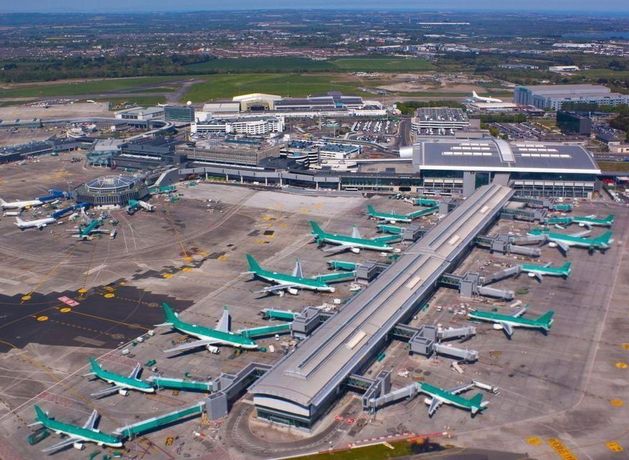Aer Lingus, Ryanair and a consortium of American carriers brought an urgent application over the decision by the Irish Aviation Authority’s (IAA) decision to limit passenger numbers to 25.2 million between late March and October.
They claim they will suffer significant harm because the seat cap would deprive them of some of their “use them or lose them” take-off and landing slots.
The ruling comes just days before a slot coordinator allocates the airport’s available summer slots to airlines. The slot distribution by the ACL (Airports Coordination Ltd) would have been confined by the IAA’s passenger cap.
Mr Justice Barry O’Donnell said the airlines would suffer “immediate serious consequences” if he refused to pause the operation and implementation of the IAA decision.
The potential consequences of a potential breach of the planning conditions– which were highlighted by the airport’s operator, DAA – did not outweigh the “highly probable and very serious adverse consequences”
A full hearing of the airlines’ wider challenge to the IAA’s decision has yet to be heard.
In making its decision on the airport’s capacity, the IAA said it considered technical, operational, environmental and local planning constraints, including An Bord Pleanála’s imposition of a separate annual 32 million passenger limit when it approved Terminal 2 in 2007.
Lawyers for Aer Lingus argued the 2007 planning condition was not a relevant consideration for the IAA in assessing the airport’s capacity. In applying it for the first time to its assessment of the winter 2024/25 season, the IAA departed from the status quo, said Paul Sreenan SC, instructed by McCann Fitzgerald solicitors.
Aer Lingus and Ryanair are also legally challenging the IAA’s imposition of a 14.4 million seat cap over the winter period, which runs from now to March 2025. DAA is challenging this decision too, but it argues the cap is too lenient and will cause the airport to breach the binding 2007 planning condition. The court is due to hear those cases in December.
The IAA was neutral on the airlines’ application but told the court it would stand over its decision at a full hearing of the airlines’ cases. DAA opposed the application, arguing it would facilitate a breach of the 2007 planning condition and expose the airport authority to enforcement action and potential criminal sanction.
DAA has separately applied to the local planning authority, Fingal County Council, seeking an increase of the 32 million limit to 40 million.
Central to the application for a pause to the summer 2025 cap was the airlines’ argument that they have a right under EU law to “historic” slots. The court heard last week that these slots work on a “use them or lose them” basis, meaning 80pc must be availed of in a season to secure them again the next year.
The airlines argued some of their slots would be permanently lost if they cannot be used next year due to the IAA’s cap.
Ryanair told the court the loss of historical Dublin Airport slots would hamper its right to retain such corresponding slots at 67 other European destinations.
Airlines for America, a group representing US carriers, said the IAA cap would create “very significant financial losses” and was “undercutting the very foundation of an airline’s business”.
Opposing the application, DAA’s senior barrister said the 2007 planning condition passenger cap would be breached this year and would be breached again next year if the court paused the IAA summer cap decision.
Fintan Valentine said his client operated in a “heavily regulated environment” and was prevented by the EU’s slot regulation from “unilaterally” reducing passenger numbers to comply with the 2007 planning condition.
DAA asked airlines, including Aer Lingus and Ryanair, to voluntarily reduce passenger numbers, but they refused and so were pushing the DAA into a breach of planning permission, he said.

